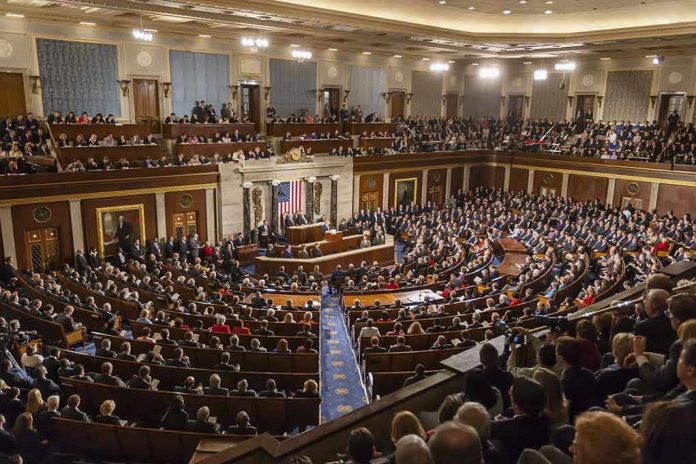
Epstein’s emails reignite the debate over elite conspiracies, drawing eerie parallels with *Eyes Wide Shut*.
Story Highlights
- Emails from Jeffrey Epstein suggest connections to elite abuse networks, echoing themes from Stanley Kubrick’s *Eyes Wide Shut*.
- The film, released in 1999, has become a cultural touchstone for understanding elite conspiracies.
- Recent documentaries and social media have fueled public interest, especially among Gen Z.
- No direct evidence links the film’s production to Epstein, but the association persists.
Kubrick’s Vision and Modern Parallels
In 1999, Stanley Kubrick released *Eyes Wide Shut*, a film exploring themes of secret societies and sexual exploitation. The film was met with intrigue and skepticism, largely due to Kubrick’s death shortly after its release, which fueled conspiracy theories about its content.
Fast forward to today, and the film finds itself at the center of renewed interest, particularly in light of Jeffrey Epstein’s email revelations.
Epstein’s emails allegedly reveal connections to powerful figures, leading many to draw parallels with Kubrick’s fictional portrayal of secretive sexual cabals. The emails suggest a network of elite abuse, echoing the film’s narrative and raising questions about the extent of elite involvement in real-world conspiracies.
This association has been amplified by documentaries and social media, capturing the imagination of younger generations seeking to understand these complex dynamics.
The Role of Gen Z and Social Media
Gen Z, in particular, has played a significant role in the resurgence of interest in *Eyes Wide Shut*. Social media platforms have become arenas for dissecting the film’s themes and their connections to Epstein’s network.
Podcasts, YouTube videos, and viral discussions have brought these issues to the forefront, illustrating a generational shift in how conspiracy theories are adopted and interpreted. This cultural phenomenon reflects broader societal distrust of elites and institutions, particularly given recent high-profile scandals.
Despite the speculative nature of these associations, the impact is tangible. Many see Kubrick’s work as a prophetic exposé, while others caution against over-interpretation that could overshadow real victims’ stories. The narrative remains speculative but influential, shaping public perceptions of elite power and secrecy.
Documentaries and Ongoing Debates
Documentaries like Tony Zierra’s “SK13” have further fueled the conversation, suggesting that Kubrick’s film anticipated the realities exposed by Epstein’s emails.
These documentaries provide a framework for understanding the complex power dynamics at play, yet they remain interpretive, lacking direct evidence of a connection between Kubrick and Epstein’s activities. Nonetheless, they have become crucial in framing public discourse around these issues.
The ongoing debate over *Eyes Wide Shut* and its connections to real-world events underscores the power of media in shaping societal narratives. While some argue for a more allegorical interpretation, others insist on literal readings that can obscure nuanced understanding.
As this discourse evolves, it highlights the challenges in addressing elite misconduct and the role of art in reflecting societal anxieties.
Sources:
The Independent: Gen Z and Conspiracy Theories
Democracy at Work: Trump, Epstein, and Kubrick
Law & Liberty: Eyes Wide Shut and the Elite
Hyperreal Film Club: Eyes Wide Shut Review




